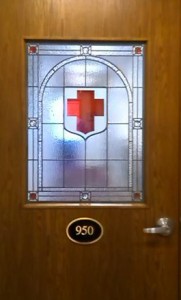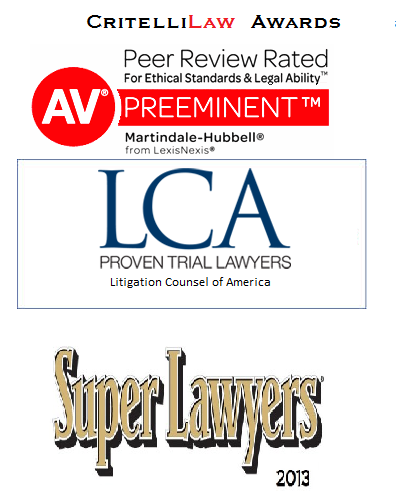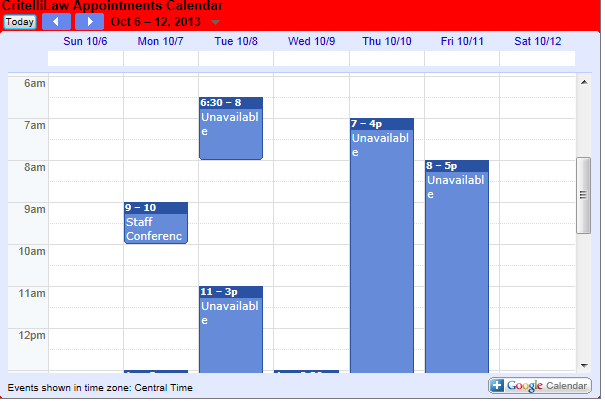ISBA: President’s Letter
Aug 15th, 2004 | By critellilaw | Category: Public ServiceThe front page of the June 23, 2004, edition of the Des Moines Register detailed a controversy surrounding the friendship between U.S. District Court Judge Mark Bennett and defense Attorneys Alfredo Parrish and Leon Spies. The article stated that “gossip about Bennett’s relationship with Parrish and Spies trickled back to the federal prosecutors creating a rift between attorneys on the two sides of the case.” Immediately, the public’s focus was shifted from the facts of the trial to the “effect” of the social interaction between the judge and the attorneys. What happened to the notion that lawyers and judges were honest and would not violate the oath of their respective offices? Must the legal profession now accept the faulty presumption that the legal system in Iowa is nothing more than another arena of “influence peddling?”
No one has claimed that the social contacts between Judge Bennett and the lawyers were related to the pending case. Yet now even casual observers conclude that the solution to this situation is to require that in the future, outside of professional settings, there be no further social contact between judges and lawyers. Is it appropriate to concede so readily that lawyers and judges can not be friends without jeopardizing the quality of justice in Iowa? Surely lawyers and judges do not believe that to be the state of affairs. So, is the public really incapable of accepting and understanding the level of professional behavior historically expected of both judges and lawyers? Who will be harmed if judges and lawyers are prohibited from being friends? Probably only these robbed of life time friendships would be harmed, but they knew what they were doing when they accepted the job. This might be acceptable if the public’s lack of faith in the legal process ends as a result of the abolition of social relationships between lawyers and judges. But will it?
What if, even after this forced professional segregation, the problem of the public’s lack of faith persists? Will further measures need to be taken to alleviate the problem? What about the friendship between lawyers representing adverse parties? Will the public question whether a lawyer is able to represent a client effectively if she has played golf regularly with the attorney on the other side of the case? Is it possible that soon friendships with our fellow professionals will be viewed to adversely affect our judgment in court? If the public will not trust judges to put their professional duties and their friendships in the proper context, how can they possibly trust lawyers to be above reproach when they gather socially?
If this sounds ridiculous, just take a moment and remember how your clients have become a little uncomfortable when you fail to share their venomous dislike for opposing counsel? Have you ever made the “mistake” of letting your client know you were friends with opposing counsel? How did they react when they observed that you were not allowing the issues of the case to interfere with your friendship? How far must we sacrifice the quality of our lives to restore the public’s faith in the legal process? Or are we focusing on the wrong thing?
There is indeed a problem with the public’s perception of the legal profession and justice system. As lawyers and judges we know that we are held to a higher standard of conduct than the rest of society. Perhaps the real problem is that we have failed to educate the public about the expectations placed upon lawyers and judges as members of our profession.
As a profession, we have allowed the public to remain uninformed about the professional code of conduct which at all times governs the behavior of judges and lawyers whether in the court room or in a golf cart. Lawyers and judges never escape the watchful eyes of ethical conduct. In Iowa the individual’s guarantee of equal justice under the law has never balanced on who paid for the dinner or who knew the judge in law school. However, the public no longer truly “knows the Iowa lawyer.” Instead their concept of the legal profession comes from the pages of fictional novels or the big screen adaptation of fictional lawyers. Unfortunately authors of legal fiction often cast their characters as unethical influence peddling sharks who break every rule or law ever written and always prevail. The problem is magnified when that fiction’s author is a lawyer. Have you ever had a friend ask you if Scott Turow’s latest novel was “true to life?” Let’s face it, the character of an honest, ethical lawyer does not translate well to the big screen.
A twisted view of the legal profession based upon fiction can only be remedied through information. Perhaps if we provide the public with information on how the canons of ethics guarantee that judges and lawyers act appropriately, there will be no need to pretend that pre-existing friendships between judges and lawyers automatically foreclose justice. Instead of changing a system which operates well, we should recognize the benefits of maintaining an amicable relationship between the bench and the bar.
Do we really want a justice system for the State of Iowa in which judges and lawyers are loathe to acknowledge each other outside the courtroom for fear of what a third party bystander might think of the encounter? Far better that we should stand together and recognize that for the past 150 years the judges and lawyers of Iowa have been able to maintain their professional and personal lives within the bounds of the Canons of Ethics. Those who have violated these rules have been dealt with. The justice system in Iowa, both state and federal, continues to be of the highest quality. If we over react to public panic based on a legal fiction and a lack of information, we will not serve the public’s best interest.












